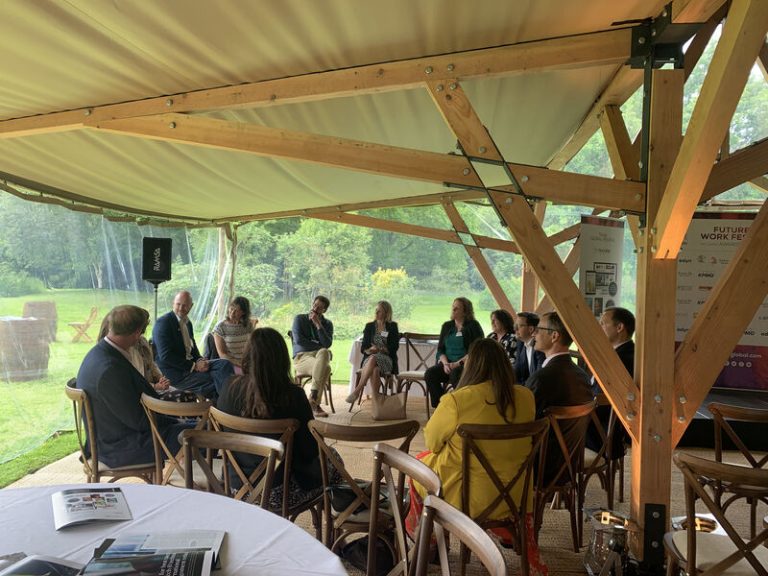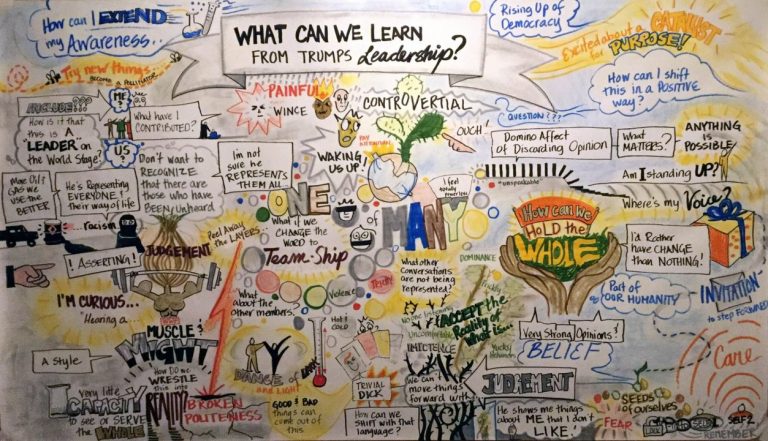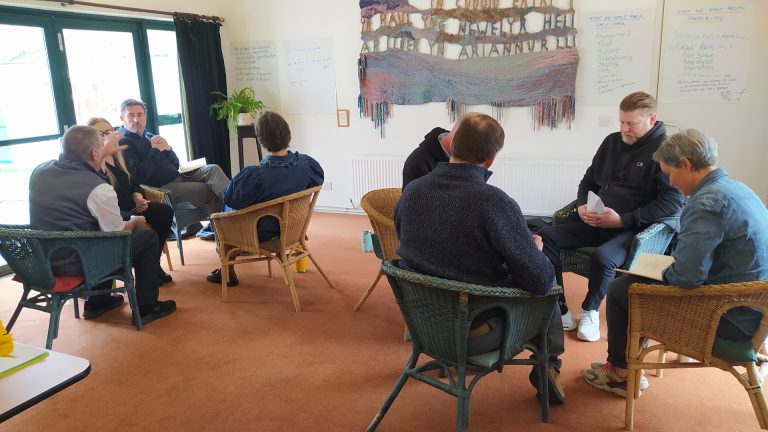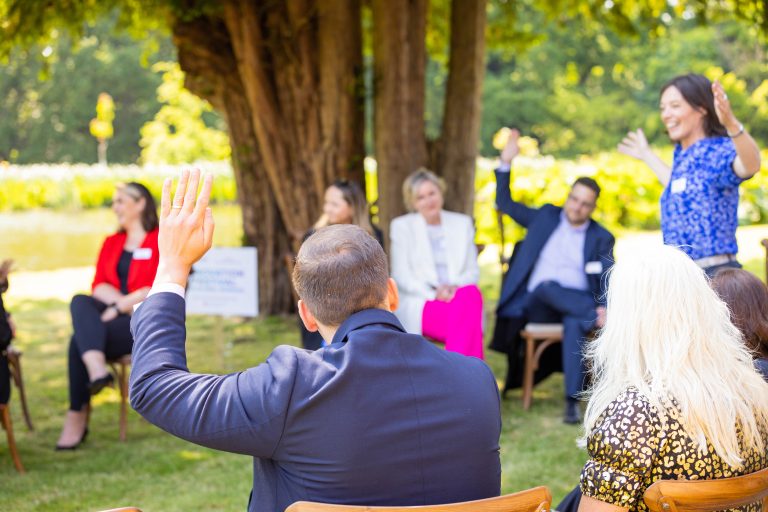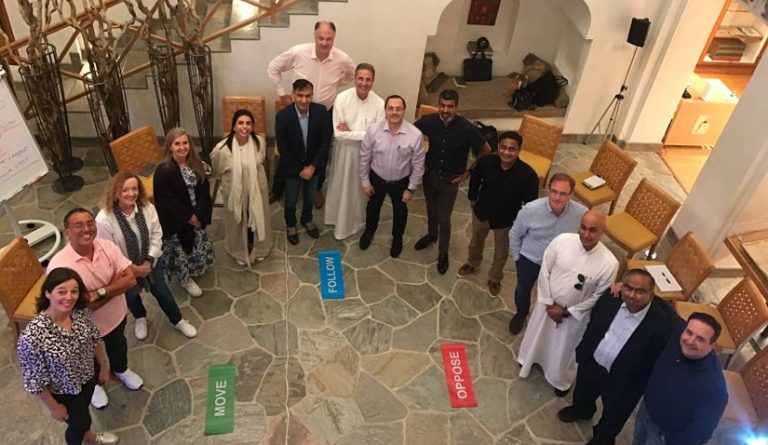I woke up to five words that shifted everything: “How can I help you?”
After a restless night stewing in heat and to-do lists, my partner’s simple question landed like a cool breeze on sun scorched skin. The pile of tasks didn’t vanish (suitcase to pack, talks to finalise, tech to remember), but something inside me softened. A sense of burden lifted. How can five ordinary words have such an extraordinary effect?
This moment of unexpected relief opened a deeper inquiry. Even though I greatly enjoy my work, the pressure was real. Just the day before, a friend emailed post-holiday saying, “My nose wouldn’t recognise a grindstone if it arrived fully labelled and with a comprehensive user manual.” My immediate (envious) thought? “Lucky you.”
It struck me: What buffers our wellbeing even on packed days? What makes the day feel do-able?
This theme echoed in a recent Now We’re Talking podcast conversation with psychologist Klaudia Mitura, author of The Alphabet of Happiness. Klaudia and I explored tangible ways to boost wellbeing at work and beyond. Her top two: kindness and curiosity in conversation. Simple. Profound. Often overlooked.
But before diving deeper, let’s sit with what Klaudia calls the happiness paradox.
The Happiness Paradox
We all say we want to be happy—but we forget to ask for happiness itself. Imagine a genie offers you three wishes. You might wish for health, wealth, a beautiful home. But happiness? We tend to treat it as a byproduct, not a priority.
Raj Raghunathan calls this our collective oversight in If You’re So Smart, Why Aren’t You Happy? We chase the means to happiness—money, romance, status—while neglecting the state of happiness itself.
We mistakenly believe we must do something to have something in order to be happy. But happiness is a feeling, not a possession. A glow, not a goal.
Take my friend with the ever-upgrading house. He thought the extra bedroom would finally bring peace. Now, he’s working harder to fix what isn’t quite right. The goalpost keeps moving. Sound familiar?
Author Neale Donald Walsch reframes this cycle. Rather than “have-do-be,” what if we reversed it? What if we start with beingness?
Because here’s the secret: happiness, joy, and contentment begin inside. They’re already here, waiting beneath the noise.
Moments That Matter
This summer, I’ve started resisting the morning inbox crawl. Instead of poking around in my inbox while the sun is rising, I step into the garden. Dew on my bare feet. Sky overhead. “Gracias por la vida,” I whisper, as I take a pause.
In those slow, sensory moments, I’m reminded: nothing needs to be achieved, fixed, or acquired. Joy simply is. The body knows. And it knows how to return.
Boosting the Happiness Valve
Positive psychology offers hopeful news. According to Sonja Lyubomirsky, while 50% of our happiness may be genetic and 10% circumstantial, we have 40% to work with—through habits, attention, and choice.
Kindness is one such habit. It’s free. It’s potent. And it’s always available.
Try this:
- Ask someone how they really are—and pause long enough to hear the answer.
- Say “thank you” and let your eyes do the talking too.
- Let a mistake pass without commentary. Choose gentleness instead.
Klaudia reminded me that rudeness often isn’t malice—it’s just… rushing. That led me to revisit the classic 1970s Princeton study: theology students, some en route to talk about the Good Samaritan, walked past a groaning person slumped in a doorway. Those in a hurry rarely stopped. Those with time? 63% did.
So what’s the takeaway? Slow down. Kindness walks at walking speed.
What would shift if we treated happiness not as a prize at the end of a task list but as a way of moving through the world? As Ralph Waldo Emerson wrote, “You cannot do kindness too soon for you never know how soon it will be too late.”
Today, ask someone, “How can I help you?”—and mean it. Better yet, ask it of yourself.
Then, step outside. Let the dew or sky greet your senses. Pause. Thank life. Start there.
Let’s not wait for a genie. Let’s practice the magic ourselves.

